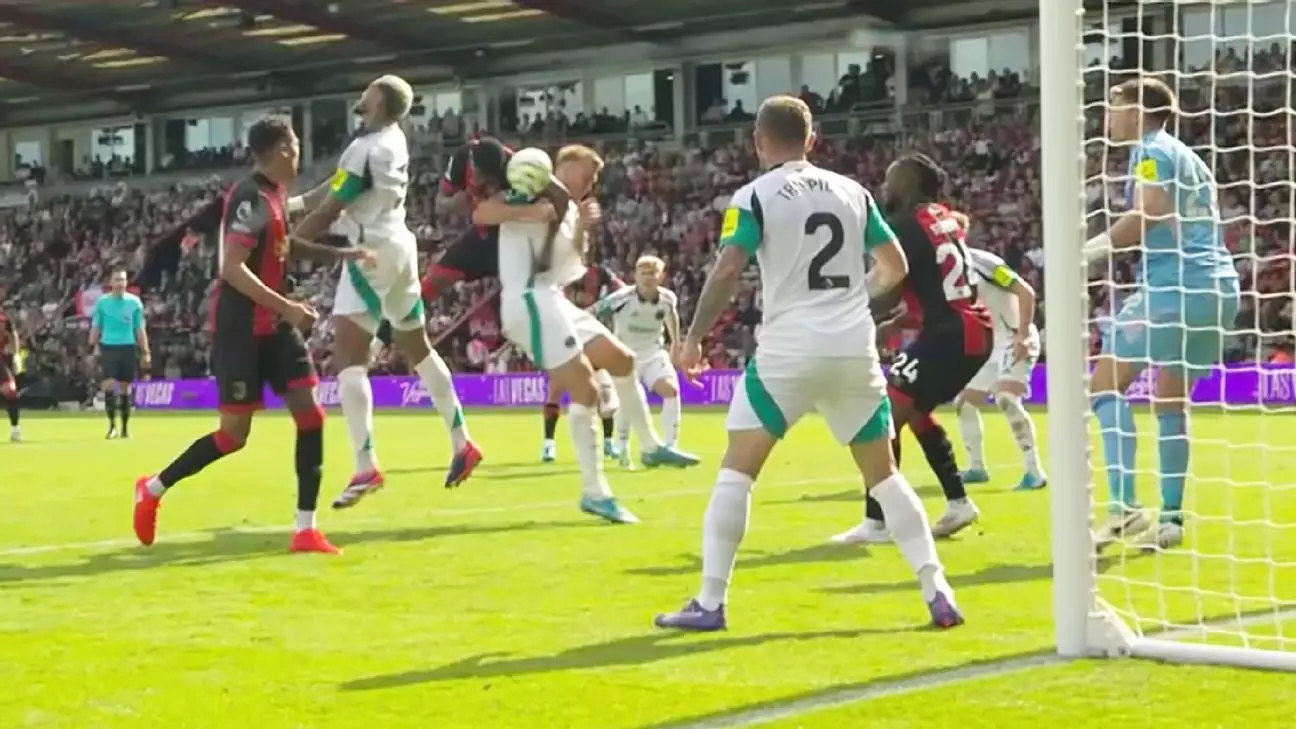In the world of soccer, the Video Assistant Referee (VAR) continues to be a topic of discussion and debate every week in the Premier League. The decisions made by VAR have caused controversy and frustration among fans, players, and coaches alike. But the question remains, are these decisions correct and how are they determined?
One of the most recent incidents that sparked controversy was when AFC Bournemouth’s late winner against Newcastle United was ruled out by VAR. The goal, scored in the 92nd minute by Dango Ouattara, was disallowed after a possible handball was detected by the VAR, Tim Robinson. The decision to overturn the goal left fans outraged, as there was no definitive proof that the ball had made contact with Ouattara’s arm. The lack of conclusive evidence raised questions about the VAR’s role in disallowing crucial goals in tight matches.
It’s important to note that the interpretation of handball in soccer has evolved over the years, leading to confusion and controversy. The definition of handball, particularly regarding where the offense begins on the arm, has been a point of contention. The introduction of the “t-shirt line” as a reference point for handball has only added to the complexity of the rule, making it difficult for officials to make consistent decisions. The ambiguity surrounding handball calls has made it challenging for VAR to intervene effectively and efficiently.
Another area where VAR has struggled to make consistent calls is in cases of serious foul play and violent conduct. The decision-making process for potential red card offenses has been a point of contention, with referees sometimes failing to punish players for dangerous actions. Inconsistencies in applying the laws of the game have led to frustration among fans and calls for greater clarity and consistency in officiating.
One common criticism of VAR is the perception of bias towards bigger clubs over smaller teams. The decisions made by VAR, especially in penalty incidents, have fueled the belief that larger clubs receive favorable treatment from officials. The role of VAR in correcting on-field calls and maintaining fairness in the game has come under scrutiny, with concerns about the impact of controversial decisions on the outcome of matches.
The use of VAR in soccer has undoubtedly changed the dynamics of the game, with technology playing an increasingly significant role in officiating matches. While the intention of VAR is to eliminate errors and improve decision-making, its implementation has not been without challenges. The controversies surrounding VAR calls have highlighted the need for greater clarity, consistency, and transparency in the decision-making process.
The use of VAR in the Premier League continues to be a source of debate and controversy. The interpretation of rules, the application of technology, and the impact on the game have raised important questions about the role of VAR in soccer. As the debate rages on, it is crucial for stakeholders to address the challenges and flaws in the current system to ensure fair and accurate officiating in one of the world’s most popular sports.
